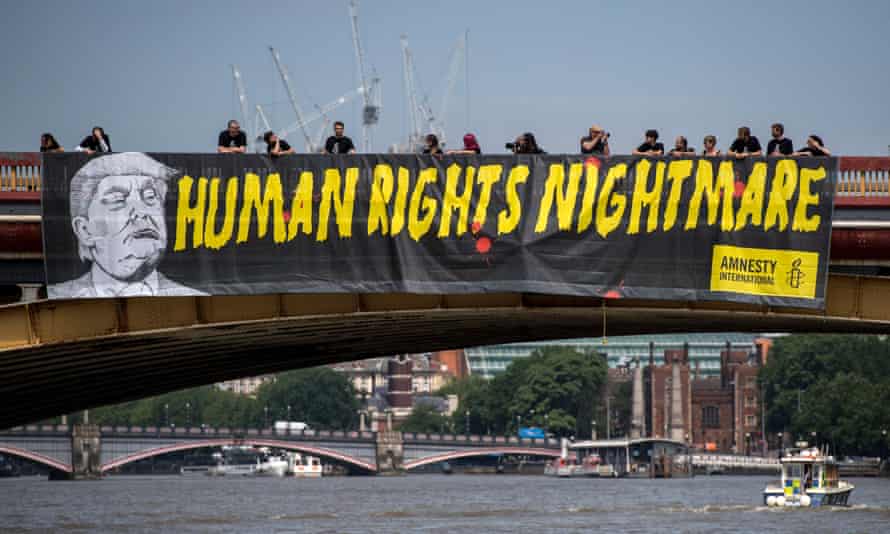
A few months ago, there was an announcement in Mekele about electing a: Miss Virgin. It shows, that the tplf was running a sex industry. Tegaru women were raped & abused for years & years, but Amnesty was't their voice.



The report, undertaken by the KonTerra Group and led by psychologists, to look into lessons learned following the suicides in 2018, found bullying and public humiliation were routinely used by management.As organisational rifts and evidence of nepotism and hypocrisy become public knowledge they will be used by government and other opponents of Amnesty’s work to undercut or dismiss Amnesty’s advocacy around the world, fundamentally jeopardising the organisation’s mission.
it said.There were multiple reports of managers belittling staff in meetings, deliberately excluding certain staff from reporting, or making demeaning, menacing comments like: ‘You’re [deleted]!’ or: ‘You should quit! If you stay in this position, your life will be a misery,’
due to the nature of the work.significant risk of experiencing secondary stress or vicarious trauma
Staff reported multiple accounts of discrimination on the basis of race and gender and which women, staff of colour and LGBTQI employees were targeted or treated unfairly.Amnesty International had a reputation for doing great work but being a hard place to work. Across many interviews the word ‘toxic’ was used to describe the Amnesty work culture as far back as the 1990s. So were the phrases ‘adversarial’, ‘lack of trust’ and ‘bullying’.
it said.Given Amnesty’s status and mission – to protect and promote human rights – the number of accounts the assessment team received of ‘bullying’,‘racism’, and ‘sexism’ is disconcerting,
One of the issues facing the organisation was a “martyrdom culture”, in which staff would sacrifice their own wellbeing by taking on huge workloads – a clear “recipe for overload and burnout”. The restructuring had “taken a considerable toll” on staff wellbeing, it said.it appears that positions or individuals may have been made redundant without due process.
Kumi Naidoo, Amnesty’s secretary-general, said the review was a difficult and profoundly troubling read. In a statement (pdf), https://www.amnesty.org/download/Docume ... NGLISH.PDF he said he would bring forward a reform plan by the end of March.Amnesty cannot effectively strive to make the world a better place while perpetuating an organisational culture deeply marked by secrecy, mistrust, nepotism and other forms of power abuse.
His death was followed by several reviews. One, conducted by James Laddie QC, found that “a serious failure of management” had contributed to Mootoo’s death. https://www.theguardian.com/global-deve ... ed-himselfThe way they announced it, the way they tried to cover up.

Secretary of State Anthony Blinken said.We are deeply concerned by the worsening humanitarian crisis,
the statement says.However, the attempt by the US to make pronouncements on Ethiopia’s internal affairs and specifically the reference to the Amhara regional forces redeployment is regrettable,
According to the Ethiopian government spokesperson, the Federal Government is mandated by the constitution to ensure peace and security against any threats to the Constitutional order of the country.It should be clear that such matters are the sole responsibility of the Ethiopian government, which as a sovereign nation, is responsible to deploy the necessary security structures and means available in ensuring the rule of law within all corners of its borders.
Further, the government said that it has an unwavering commitment to honour its international responsibilities despite the destabilizing nature of the challenges that ensued due to the high treason of a criminal clique.It is in the spirit of this responsibility and holding a nation together from treasonous and divisive forces that the Federal government has been undertaking the rule of law operations in Tigray.
it said.Nevertheless, honouring international obligations and responsibilities should not be deemed by any entity as an invitation to dictate a sovereign nation’s internal affairs,





will take measures against those misleading international media